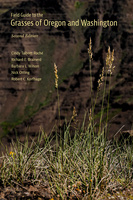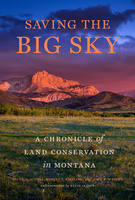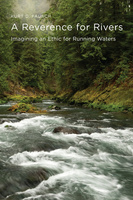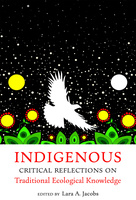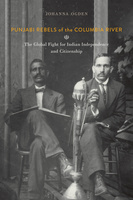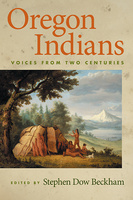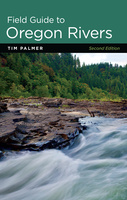Oregon State University Press
For fifty years, Oregon State University Press has been publishing exceptional books about the Pacific Northwest—its people and landscapes, its flora and fauna, its history and cultural heritage. The Press has played a vital role in the region’s literary life, providing readers with a better understanding of what it means to be an Oregonian. Today, Oregon State University Press publishes distinguished books in several academic areas from environmental history and natural resource management to indigenous studies.
Field Guide to the Grasses of Oregon and Washington
With 18 additional species, updated names, new keys, and improved photos and maps, the second edition of Field Guide to the Grasses of Oregon and Washington provides an in-depth and refreshed treatment of both native and introduced grasses that grow wild in Oregon and Washington and their neighboring states and provinces.
Saving the Big Sky
A Chronicle of Land Conservation in Montana
Beautifully illustrated with more than ninety color photographs and thirty detailed maps, Saving the Big Sky showcases land conservation achievements across eight regions of the state: the Rocky Mountain Front, the Blackfoot Valley, the Greater Yellowstone, the Missoula Region, the Helena Region, Northwest Montana, the Flathead Indian Reservation, and the American Prairie.
First Fruits
The Lewellings and the Birth of the Pacific Coast Fruit Industry
First Fruits offers a fascinating look at the lives of Pacific Coast horticulturists Henderson, Jonathan, and Seth Lewelling.
High Desert, Higher Costs
Bend and the Housing Crisis in the American West
In High Desert, Higher Costs, Jonathan Bach takes a closer look at the housing crisis in this mid-sized city that is both the population center for rural Central Oregon and a major recreation area.
A Reverence for Rivers
Imagining an Ethic for Running Waters
In A Reverence for Rivers, Kurt Fausch draws on his experience as a stream ecologist, his interest in Indigenous cultures, and a thoughtful consideration of environmental ethics to explore human values surrounding freshwater ecosystems.
Indigenous Critical Reflections on Traditional Ecological Knowledge
With more than fifty contributors, Indigenous Critical Reflections on Traditional Ecological Knowledge offers important perspectives by Indigenous Peoples on Traditional Ecological Knowledge and Indigenous value systems.
Toward Oregon 2050
Planning a Better Future
How do we plan for a better Oregon in 2050? What will the state be like in that year for five million Oregonians, particularly for the least privileged and powerful residents? In this compelling volume, leading experts in land use and urban planning envision various possible futures and begin the work of developing statewide plans to guide Oregon through the decades ahead.
Listening to Survivors
Four Decades of Holocaust Memorial Week at Oregon State University
Listening to Survivors presents the voices of nineteen Holocaust survivors and two witnesses who shared their personal experiences with audiences at Oregon State University over the past four decades as part of the university’s Holocaust Memorial Week observance.
River of Renewal
Myth and History in the Klamath Basin
River of Renewal tells the remarkable story of the Klamath Basin, which spans the Oregon-California border, from the first human habitation of the region to restoration of the watershed and its wildlife after removal of the Klamath River’s four hydroelectric dams.
Virginia's Apple
Collected Memoirs
The fourteen literary memoirs collected in Virginia’s Apple explore pivotal episodes across poet and writer Judith Barrington’s life. Artfully crafted, each one stands alone yet they are linked—characters reappear and, taken together, the pieces create a larger narrative.
Nature on the Edge
Lessons for the Biosphere from the California Coast
In Nature on the Edge, ecologist Bruce Byers offers readers new perspectives on two iconic California coastal regions, San Francisco Bay and the Golden Gate and the Santa Barbara Channel Islands. While many people—in California and elsewhere—are familiar with these two areas, they may not know that they are part of a network of international biosphere reserves organized by the United Nations Educational, Scientific, and Cultural Organization (UNESCO). Nature on the Edge traces the history of nature conservation in these places and introduces the committed individuals who led those efforts and model effective action.
Burn Scars
A Documentary History of Fire Suppression, from Colonial Origins to the Resurgence of Cultural Burning
The first documentary history of wildfire management in the United States, Burn Scars probes the long efforts to suppress fire, beginning with the Spanish invasion of California in the eighteenth century through the US Forest Service’s relentless nationwide campaign in the twentieth century. In recent years, suppression has come under increasing scrutiny as a contributing factor to our current era of megafires.
Punjabi Rebels of the Columbia River
The Global Fight for Indian Independence and Citizenship
Punjabi Rebels of the Columbia River traces the global and local forces at play behind two momentous events in Indian and Indo-American history which began in Oregon in the early 1900s: the radical Indian independence organization known as Ghadar and Thind, an epoch-defining U.S. Supreme Court citizenship case.
Oregon Indians
Voices from Two Centuries
In this deeply researched volume, Stephen Dow Beckham brings together commentary by Native Americans about the events affecting their lives in Oregon. Now available in paperback for the first time, this volume presents first-person accounts of events threatening, changing, and shaping the lives of Oregon Indians, from “first encounters” in the late eighteenth century to modern tribal economies.
The book's seven thematic sections are arranged chronologically and prefaced with introductory essays that provide the context of Indian relations with Euro-Americans and tightening federal policy. Each of the nearly seventy documents has a brief introduction that identifies the event and the speakers involved. Most of the book's selections are little known. Few have been previously published, including treaty council minutes, court and congressional testimonies, letters, and passages from travelers’ journals.
Oregon Indians opens with the arrival of Euro-Americans and their introduction of new technology, weapons, and diseases. The role of treaties, machinations of the Oregon volunteers, efforts of the US Army to protect the Indians but also subdue and confine them, and the emergence of reservation programs to “civilize” them are recorded in a variety of documents that illuminate nineteenth-century Indian experiences.
Twentieth-century documents include Tommy Thompson on the flooding of the Celilo Falls fishing grounds in 1942, as well as Indian voices challenging the "disastrous policy of termination," the state's prohibition on inter-racial marriage, and the final resting ground of Kennewick Man. Selections in the book's final section speak to the changing political atmosphere of the late twentieth century, and suggest that hope, rather than despair, became a possibility for Oregon tribes.
Field Guide to Oregon Rivers
A practical, informative, and inspiring guide to the rivers of Oregon, ideal for residents of the state and visitors alike.

